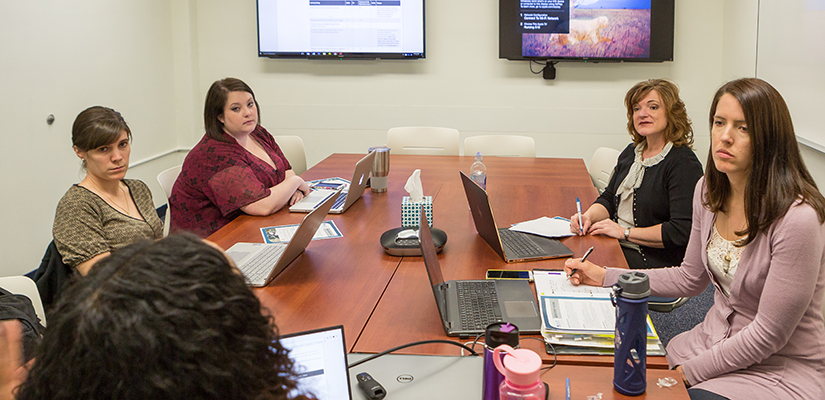Students who have earned a BSN, a master's degree in nursing, a DNP, or a BSN and a master's degree in another field are eligible for admission. For those without a graduate degree in nursing, master's level nursing courses are incorporated into the plan of study prior to enrolling in Ph.D. core courses.
GRE scores are not required for the DNP or Ph.D. programs.
A maximum of ten (10) calendar years, beginning with the initial graduate course following matriculation, is allowed for completion of the work for the Ph.D. degree. For post-DNP entry students, the anticipated length of the Ph.D. in Nursing Science program is approximately 3 to 4 years of full-time enrollment . For students who enter with an MSN degree or an MS degree in another field, the anticipated length of the Ph.D. in Nursing Science program is approximately 3 to 4 years of full-time enrollment. Students entering with a BSN should anticipate completing the program in 5 to 6 years of full-time enrollment.
There are many funding sources available for Ph.D. students, including university and private scholarships, government agency traineeships, federal loans, and professional association scholarships. You can anticipate receiving full funding for tuition for the first 36 credit hours of pre-dissertation coursework. The Office of Financial Aid provides the full breakdown of the estimated cost to attend. Learn more about your financial aid options.
Although students are not required to identify a specific research area topic prior to matriculation, it is important to describe a research area of interest as it is necessary to have a potential match with our graduate faculty in a broad research area as that will facilitate degree progression. Faculty research emphasis areas are detailed in the Research section.
Students take a minimum of six credits outside of nursing, and many students earn a Certificate of Graduate Study in a related area. Examples of available graduate certificates include Applied Statistics, Gerontology, Health Communication, Public Health and Women's and Gender Studies.
Our graduates are productive nursing scientists and scholars committed to improving the health and nursing care of patients, families, and communities. They serve as faculty in academic institutions as well as researchers in a variety of agencies including industry, government, and clinical settings.
